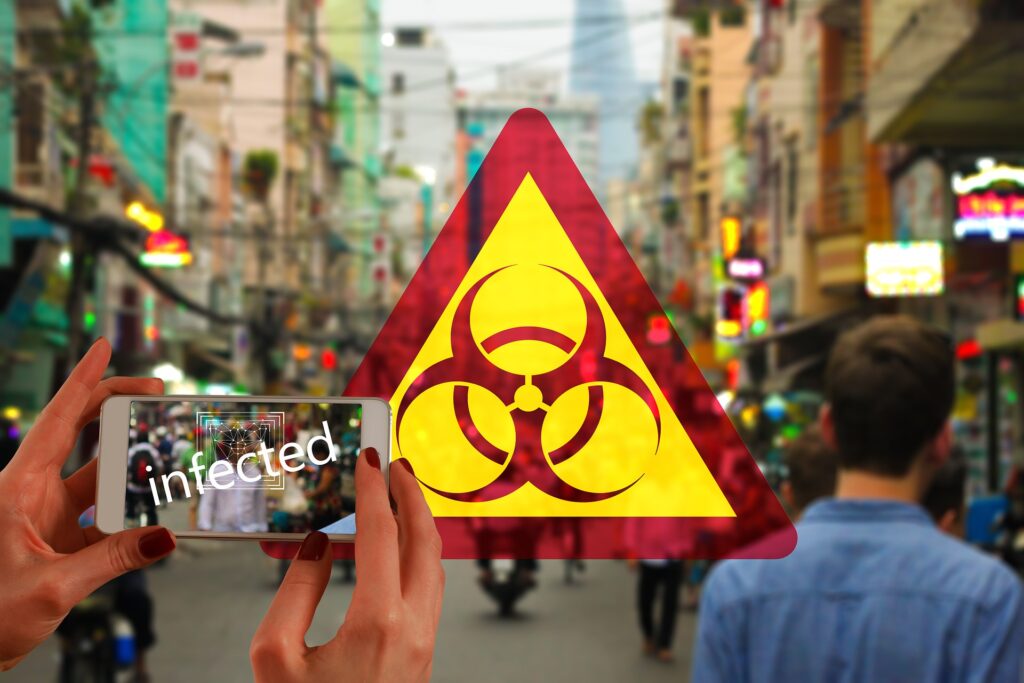In the vast world of smartphones, Apple’s iPhones stand out for their sleek design, user-friendly interface, and strong emphasis on security. But have you ever wondered why there aren’t many virus scanners available for iPhones? As we dive into this topic, we’ll demystify the reasons behind the scarcity of virus scanners for iPhones and explore how Apple’s approach to security plays a role.

Apple’s Walled Garden: A Unique Approach
Apple has long been known for its “walled garden” approach to its ecosystem. This approach involves tightly controlling what software and apps can run on its devices. While this strategy has been praised for creating a more secure environment, it also means that third-party apps, including virus scanners, face certain limitations.
1. Limited Access to System Files
One of the reasons why virus scanners for iPhones are scarce is because of Apple’s strict control over access to system files. Unlike some other operating systems, iOS (the operating system on iPhones) has strong restrictions on what apps can access. This makes it challenging for third-party virus scanners to scan deep within the system and detect potential threats.
2. App Store Review Process
Every app that’s available on the Apple App Store goes through a rigorous review process to ensure it meets Apple’s security and quality standards. While this helps maintain a high level of security for iPhone users, it also means that virus scanner apps must adhere to Apple’s guidelines. Apps that duplicate functionality already provided by the built-in security features may face rejection from the App Store.
3. Background Restrictions
Apple places restrictions on apps running in the background to save battery life and enhance user experience. This can limit the effectiveness of virus scanners, which often need continuous access to monitor for potential threats.
Apple’s Built-In Security Measures
Apple has implemented a range of security features directly into iOS, reducing the need for third-party virus scanners:
1. App Sandboxing: Each app on an iPhone runs in its own “sandbox,” which isolates it from other apps and the system. This containment makes it difficult for malware to spread between apps.
2. Code Signing: Every app on the App Store is signed with a unique digital signature. This helps prevent unauthorized apps from running on the device.
3. Gatekeeper and XProtect: Apple employs Gatekeeper and XProtect to ensure that only safe and verified software is installed on Macs. While not exactly the same for iPhones, these features are part of Apple’s security ecosystem.
4. Regular Updates: Apple regularly releases updates to iOS that include security patches and bug fixes. These updates help address vulnerabilities and protect users from potential threats.
5. Secure Enclave: iPhones are equipped with a secure enclave — a dedicated chip responsible for encryption and storing sensitive data like fingerprints and passwords.
What About Malware?
While Apple’s security measures greatly reduce the likelihood of encountering malware on iPhones, it’s important to note that the platform is not immune to all threats. There have been instances where malicious apps have made their way onto the App Store, though Apple’s review process usually catches and removes them swiftly.
Staying Safe on iPhones
While the absence of many third-party virus scanners might seem like a gap, it’s crucial to remember that iPhones are designed with robust security features in mind. To stay safe on your iPhone:
1. Keep Your Software Updated: Regularly update your iPhone’s software to ensure you have the latest security patches.
2. Download from Trusted Sources: Stick to the Apple App Store for downloading apps. Apple’s review process helps weed out malicious apps.
3. Be Cautious with Links: Avoid clicking on suspicious links, especially from unknown sources or unsolicited messages.
4. Use Strong Passwords and Biometric Security: Set up strong passwords and use features like Touch ID or Face ID for an extra layer of security.
5. Educate Yourself: Stay informed about the latest security practices and potential threats to make informed decisions.
In the end, the scarcity of virus scanners for iPhones isn’t due to a lack of concern for security. It’s a result of Apple’s unique approach to creating a controlled and secure environment for its users. By understanding the security features that Apple has built into iPhones and following best practices, you can navigate the digital landscape with confidence.